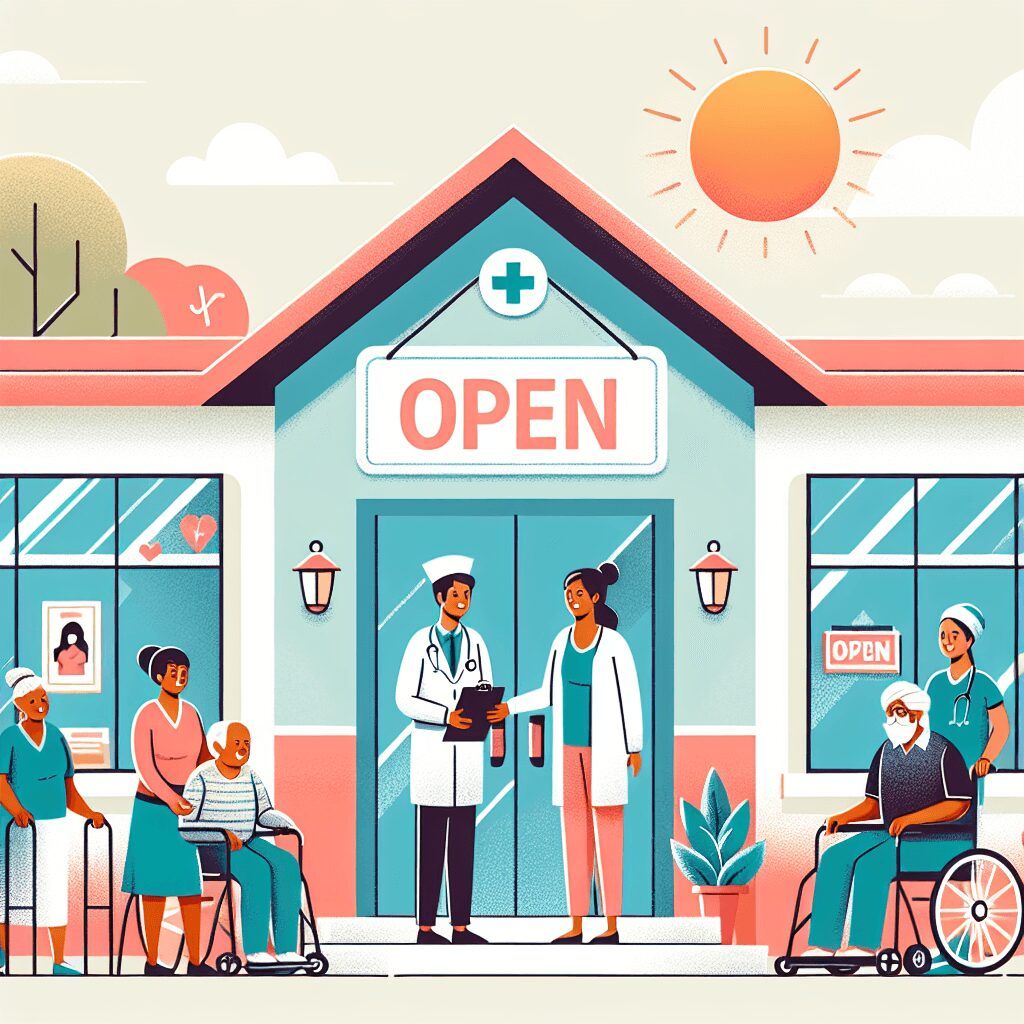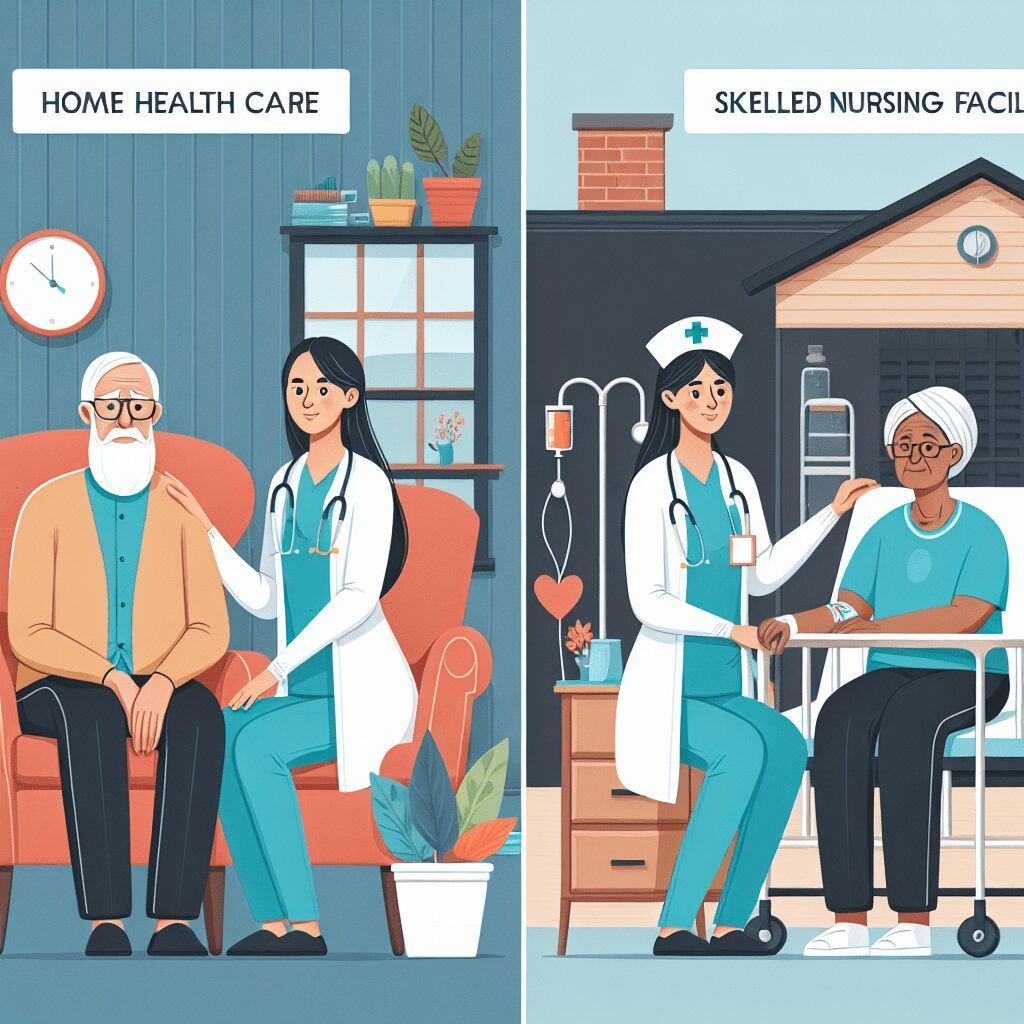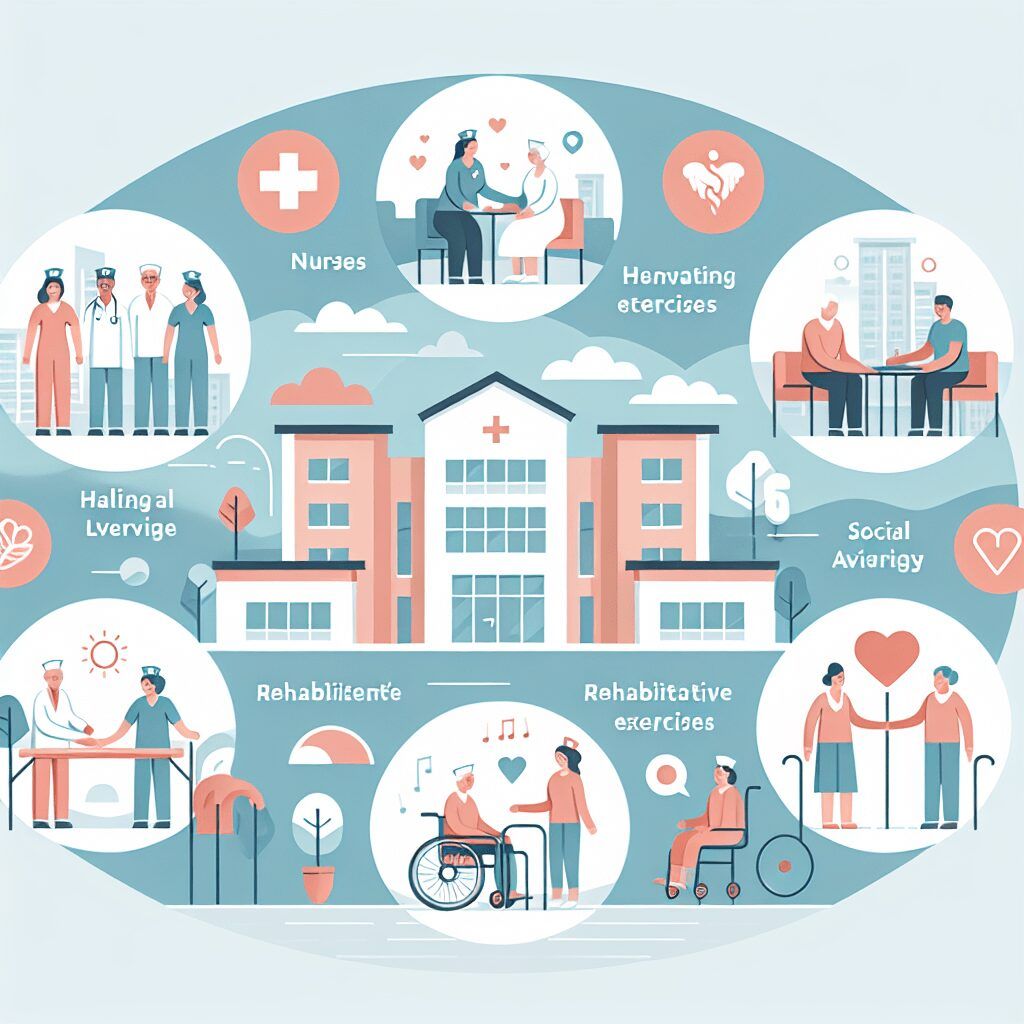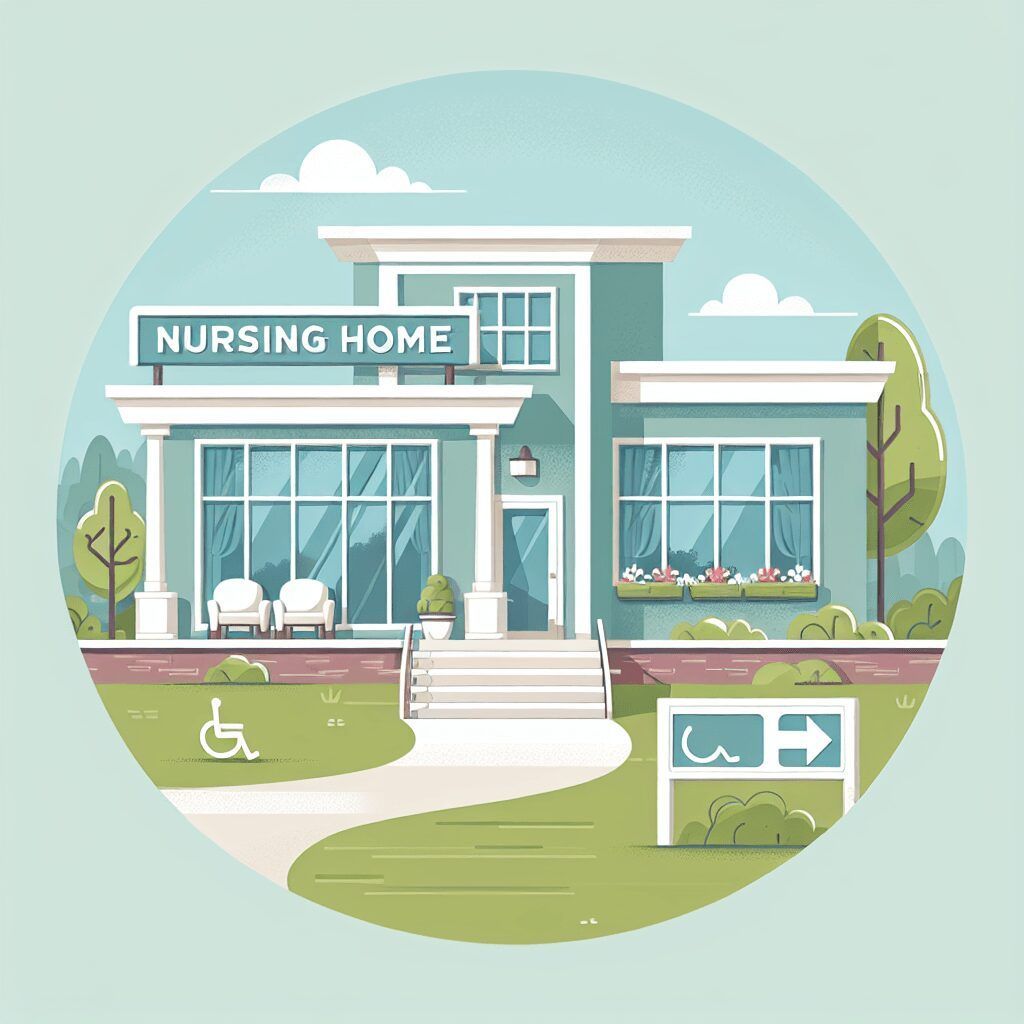Guide to Caring for the Elderly
Caring for an elderly loved one can be challenging. You may be unsure where to start or what options are available. When an older person can no longer live safely at home, decisions about long-term care facilities must be made. There are different residential options to consider:
-
Board and care homes
-
Nursing homes
-
Assisted living facilities
-
Continuing care retirement communities
This guide will help you explore these options and navigate the complex world of eldercare. Let’s learn more about providing the best care for your elderly family member.
Understanding Elderly Care Needs
Determining the Level of Care Needed
Determining the level of care needed for an elderly individual involves assessing their specific medical conditions or challenges. These challenges require assistance with daily activities. The evaluation includes assessing the person’s independence in managing personal care, medication, and mobility. Cognitive impairments, like dementia, also play a significant role in this assessment.
Family members or caregivers should consider different options, such as assisted living facilities, nursing homes, or home care services, to provide the required support. Understanding eligibility requirements for programs like Medicare or Medicaid can help cover costs related to long-term care, including skilled nursing services, housekeeping, and personal care assistance.
Recreational activities and services like virtual companion care or hospice care should also be considered. These factors are important when deciding on the appropriate care plan for seniors. The ultimate goal is ensuring that the elderly receive the tailored care and support they need to maintain their quality of life.
Exploring Elder Care Options
When exploring elder care options, consider:
-
The level of care needed, like assisted living, nursing homes, memory care for dementia, or skilled nursing.
-
Consulting a family advisor for personalized recommendations based on individual needs.
Affordable options include:
-
Medicaid for eligible individuals.
-
Long-term care insurance for specific costs coverage.
-
Senior living communities with various services.
Regulated facilities like:
-
Assisted living facilities
-
Nursing homes provide care and housing for older adults.
Family members and caregivers are essential for ensuring seniors’ well-being.
-
They should be involved in decision-making and seek appropriate care services for their loved ones.
Types of Elder Care Facilities
Assisted Living Communities
Assisted living communities provide a variety of services:
-
Personal care
-
Social and recreational activities
-
Meal services
-
Medical care
Residents typically have their apartments or rooms while sharing common areas. The services include:
-
Up to three meals a day
-
Help with personal care, medications, housekeeping, and laundry
Additionally, they offer:
-
24-hour supervision and security
-
Social and recreational activities
Staff collaborate with residents and families to create personalized care plans. These could include:
-
Exercise classes
-
Art workshops
-
Group outings
-
Social gatherings
Memory care programs cater to individuals with conditions like dementia or Alzheimer’s. They provide tailored care and support for their specific needs.
Nursing Homes
Nursing homes offer advanced care for seniors compared to other facilities. They focus on medical services like nursing care and 24-hour supervision.
They provide three daily meals, help with daily tasks, and offer rehabilitation services.
Unlike assisted living or board and care homes, nursing homes cater to seniors with complex health needs.
Residents receive medical attention and help with daily tasks, ensuring they get the necessary care.
This is especially beneficial for seniors with medical conditions or frailty who need more supervision and skilled care.
Memory Care Facilities
This eldercare facility specializes in memory care for individuals with dementia or Alzheimer’s.
They offer tailored programs and services to support residents with memory impairments.
Activities are designed to stimulate cognition and promote social engagement.
The facility ensures safety by implementing security measures to prevent wandering and providing a structured environment to reduce confusion and anxiety.
The staff includes trained professionals specializing in dementia care and memory support.
The facility prioritizes the unique needs of seniors with memory issues, creating a supportive and enriching environment for residents.
Choosing the Right Elder Care Facility
Factors to Consider
When choosing an elder care facility, it’s important to consider financial aspects.
-
Understand what services are covered by health insurance like Medicare or Medicaid.
-
Check if the facility accepts long-term care insurance.
-
Consider the costs of different care services, such as skilled nursing care, assisted living, memory care, and home care.
The facility’s location is important.
-
It should be easily reachable for family visits.
-
Proximity to medical services ensures prompt care for the elderly.
Tailor the level of care to the individual’s needs.
-
Assess if they require help with daily activities, medical care, or specialized care like for dementia.
-
Family and caregivers should evaluate the needed care level to ensure the senior’s well-being.
Consulting with a Family Advisor
Consulting with a family advisor can help when looking into elder care options. They can guide assisted living, nursing homes, and other facilities.
A family advisor will assess the elderly loved one’s medical needs, personal care requirements, and social preferences to determine the level of care needed. They can explain the differences between services like memory care and skilled nursing care, tailoring the advice based on individual needs.
Moreover, they can assist in understanding eligibility criteria for Medicare, Medicaid, and long-term care insurance to guarantee appropriate coverage for seniors. By working with family advisors, families can make well-informed decisions to ensure their elderly relatives receive the necessary care while preserving their well-being and quality of life.
Different Levels of Care
Skilled Nursing Care vs. Custodial Care
Skilled nursing care and custodial care differ in the level of medical expertise. Skilled nursing involves services like physical therapy and administering IV medications, requiring licensed medical personnel. Custodial care, on the other hand, focuses on daily activities such as bathing and eating.
In eldercare, skilled nursing care is provided in nursing homes with a higher medical level, while custodial care helps seniors with daily tasks like housecleaning. This difference helps determine the right care based on individual needs and medical requirements.
Palliative Care and Hospice Care
Palliative care and hospice care focus on improving the quality of life for seniors needing long-term care services.
Assisted living facilities provide 24-hour supervision and personal care assistance.
Nursing homes offer a wide range of health and personal care services.
When choosing between palliative care and hospice care, consider the senior’s medical needs, required level of care, and family support.
Skilled nursing facilities provide round-the-clock care by licensed health professionals, addressing housekeeping and social needs.
Family advisors can advise on affordable care options and insurance for seniors needing long-term care.
Benefits of In-Home Skilled Nursing for the Elderly
In-home skilled nursing offers substantial benefits for elderly individuals, providing a personalized and comfortable alternative to traditional nursing homes or assisted living facilities. One of the primary advantages is the ability to receive professional medical care in the familiar surroundings of their own home. This setting not only enhances emotional well-being by reducing the stress and disorientation that can come with moving to a new environment but also allows for a higher degree of independence and personal autonomy. Elderly patients can maintain their daily routines and stay connected with family and friends, which is crucial for their mental and emotional health.
Moreover, in-home skilled nursing provides tailored medical care that addresses the specific needs of each individual. Skilled nurses can administer medications, manage chronic conditions, assist with mobility, and provide rehabilitative therapies as needed. This one-on-one attention ensures that any changes in health status are quickly noticed and addressed, reducing the risk of complications and hospital readmissions. The personalized care plan can also be adjusted over time to meet the evolving needs of the elderly, ensuring continuous and comprehensive support. This level of personalized care in a comfortable and familiar setting significantly enhances the quality of life for elderly individuals, promoting both physical and emotional well-being.
FAQ
What are some common health issues faced by elderly individuals?
Some common health issues faced by elderly individuals include arthritis, osteoporosis, hypertension, and dementia. Taking preventative measures such as staying physically active, eating a balanced diet, and getting regular health check-ups can help manage these issues.
How can I ensure the safety of my elderly loved one at home?
Install bathroom grab bars, remove tripping hazards, ensure proper lighting, consider a medical alert system, and provide easy access to emergency contacts. Regularly check on their well-being and discuss safety concerns openly.
What are some tips for communicating effectively with elderly individuals?
Some tips for communicating effectively with elderly individuals include speaking clearly and slowly, using nonverbal cues like hand gestures, maintaining eye contact, and being patient when listening to their responses. Additionally, showing empathy and understanding their perspective can help build a strong connection.
What are some important considerations when choosing a caregiver for an elderly family member?
Some important considerations when choosing a caregiver for an elderly family member include experience, training, references, compatibility, and communication skills. The caregiver’s availability, reliability, and willingness to follow care plans should also be considered.
What are some activities and exercises that are beneficial for elderly individuals?
Walking, swimming, tai chi, and yoga are beneficial activities and exercises for elderly individuals. These activities help improve balance, flexibility, strength, and overall well-being.
Caring for the elderly requires compassion, understanding, and specialized knowledge. At ABET Life Home Health & Caregiving , we provide a comprehensive approach to support the unique needs of aging individuals. From personalized in-home care services to skilled nursing and assisted living options, our experienced team is dedicated to enhancing the daily lives and health of your loved ones. Explore our resources and tips for effective elderly care, and learn how we can assist you in providing a nurturing and safe environment. Contact us today to find out more about our tailored elderly care solutions.
The post Guide to Caring for the Elderly first appeared on Home Health & Care Giving Service in Houston, TX.

Whether dealing with chronic illness or needing help recovering a surgery, ABET Life will support you with our focused care — covered by Medicare or other insurance carriers for qualified patients.
USEFUL LINKS
All Rights Reserved | AbetLife, Inc | Terms of Use | Privacy Policy











